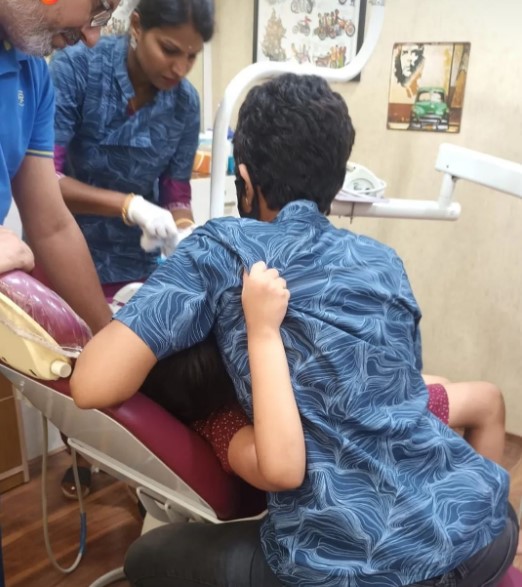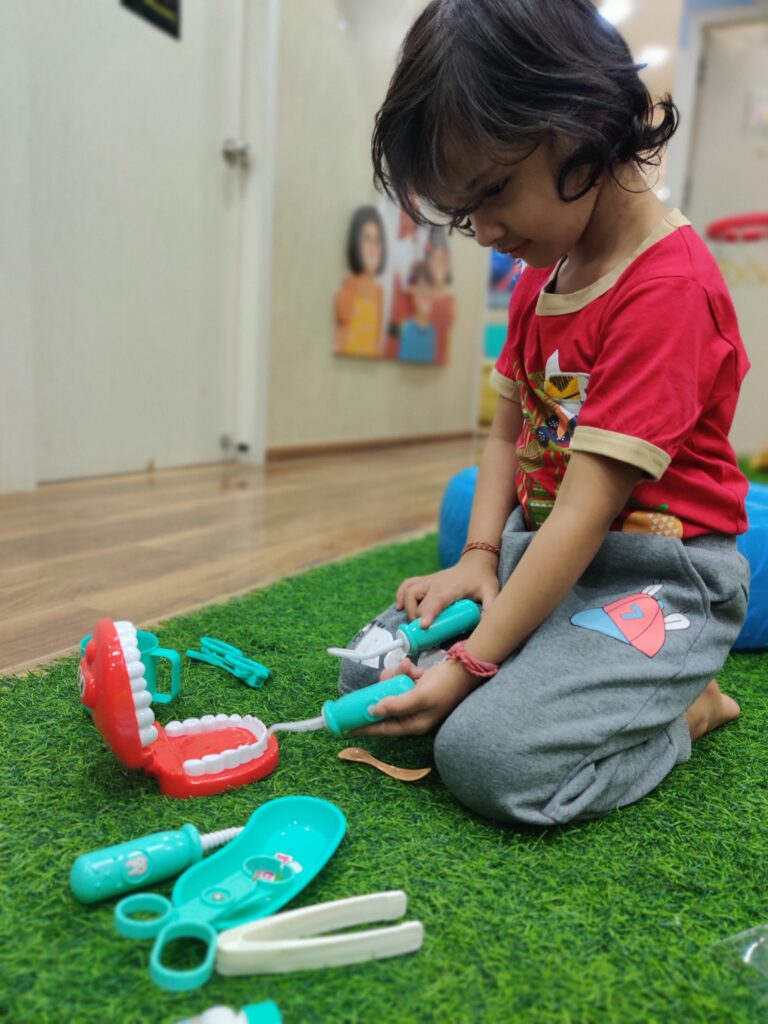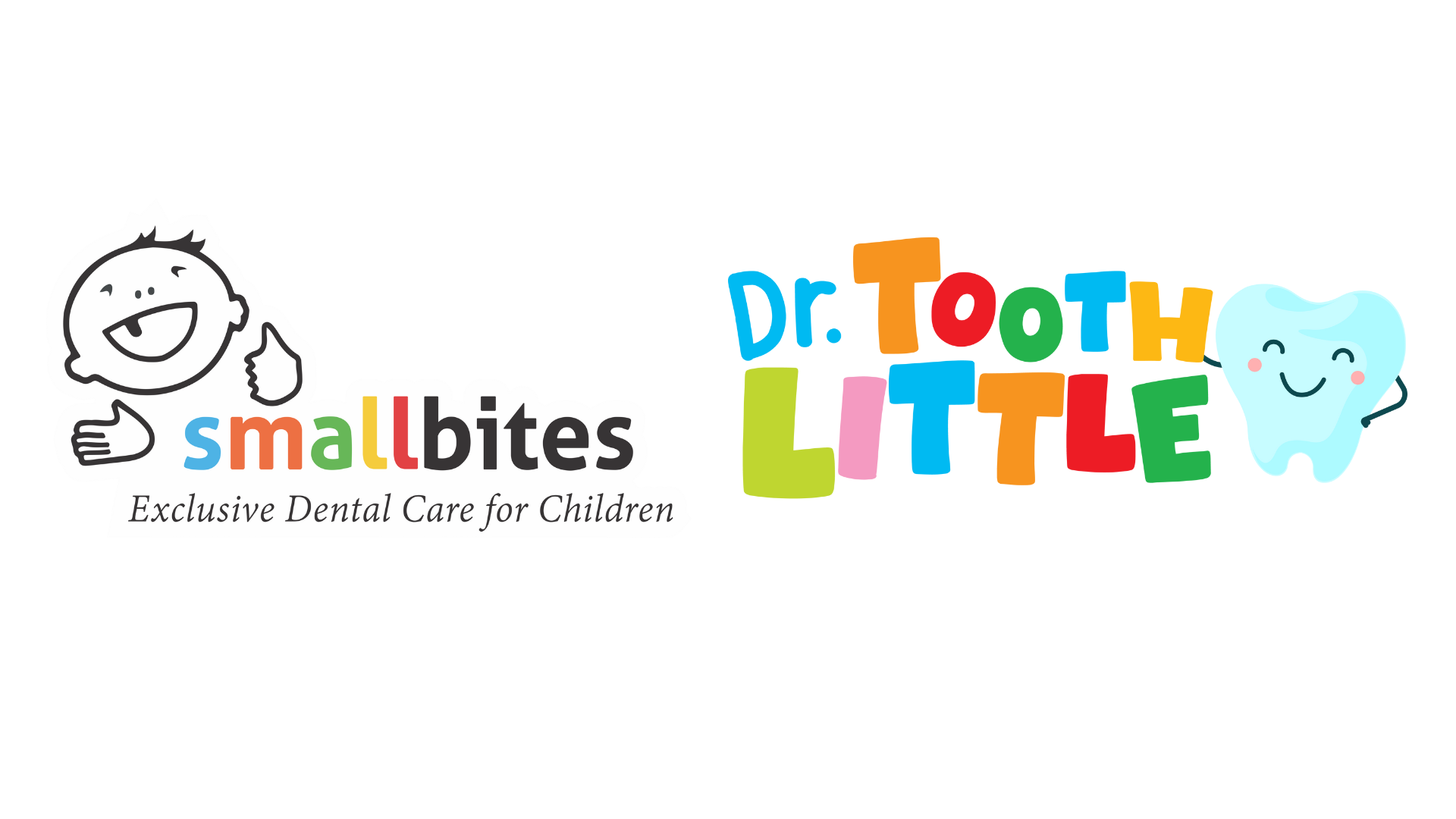9 Steps Towards Handling Children Who Can be Overstimulated at The Dental Clinic

Dental visits are as non-negotiable as a visit to a pediatrician for children. Unlike adults who can be treated after the incident, in children prevention is better than cure. And to prevent anything major, parents must take their wards to the dentist starting as early as 1 year. Children react and respond to their immediate surroundings, don’t listen to reason, and can be very overwhelmed in the moment, enough to interfere with any procedures done on them. Therefore, finding the problem early, helps in averting it.
Children today are increasingly being looked at as individuals with their own ways of accessing the world. Since everyone of them responds differently to the environment, ensuring their sensory needs are taken care of and not overloaded means understanding their sensitivities for calmer, more relaxed visits to the dentist. Gone are the days when children’s cries and stubbornness were considered as ‘attention seeking’. Today parents are attuned to the needs of children, especially in helping them find ways to go about life and yet address what troubles them. Dentists too are adapting clinics and dental centers to include features such as soothing music, low lighting, projected images moving slowly across the ceiling and multimedia like TV to relax everyone at all times.
Why do children handle dental visits differently than that at a general physician?

Many reasons induce into children a fear of dentists. Perhaps the most plausible explanation is that dental clinics are quiet, sterile spaces with sounds of motor whirring, machines and movement that comprise the constant sounds. It can be daunting for kids given that the general physicians they go to only perform general checkups and don’t need machines to go about their jobs. But there could be several other reasons why a child who is sensorially overwhelmed may dread going to a dentist. This we have observed over a large cross-section of children:
- Fear of pain
- The look of instruments like drills
- Past bad experiences
- Fear of the unknown
- Stories they have read in books
- Stories they have seen in cartoons
- Stories they have heard from siblings, classmates, friends
In addition, there could be other attenuating circumstances triggering a child;
- Difficulty coping with bright lights
- Fear or pain caused by loud sounds
- Discomfort in unfamiliar places
- Discomfort over textures, such as the chair beneath them
- Inability to relax around strangers
- Difficulty coping with breaks in routine
Any one of the above can account for a child’s behavior change as soon as he or she walks into a dental clinic. It doesn’t even account for other everyday annoyances we as adults take for granted, which may include traffic sounds, loud noises of cats and dogs, wait before appointments, sounds coming from closed doors, etc. Children often carry all of this stress even before they get into a dentist’s chair and it all explodes or aggravates when seated on it.
What are the 9 steps that parents can do, to handle their overstimulated children even before they get to the dentist?
- Make a casual visit to the dentist first, find one who has a dental clinic that is child friendly, sensory adapted and whose references vouch for the treatment. Such a dentist must understand that the needs of every child is different, and adapts their conversation and treatment to suit the little patients. Find a dentist ahead of time, research about them and especially one you can continually go to for various different ailments.
- Begin explaining the process of the dental visit to your child many days ahead of the appointment, if possible. Show them videos, books, or drawings that go through everything step by step. Research about the dentist, help your child connect with whom they are going to meet and what to expect.
- Mimic a fake dental visit where you play the dentist, so they can get a feel for the procedures and exams.
- Make sure you are with them and follow their routine through the day in every way other than the visit, to lessen their anxiety.
- Remain communicative and present at the dentist before, during and after the dental examination, never losing sight of them.
- Lessen sensory triggers if any as much as possible; bring sunglasses or a sleep mask for lights, earplugs or headphones with soothing music for sound, and a special toy, blanket or other comfort object.
- Talk to the dentist freely before the procedure and explain about your child. They will not know what to expect as signs of your child’s distress, but you do. You can let them know when breaks are needed, or if there is something they can do to make the process go more smoothly.
- Consider sedation or Nitrous Oxide (Laughing Gas) which dental clinics like Small Bites are equipped with in case the child needs more relaxing for an especially difficult procedure. Though a last resort, for long, painful or frightening procedures, you may wish to consent to your child being put under for the duration. Please bear in mind that this has to be planned in advance, so have a word with your child’s dentist before finalizing an appointment. You may also wish to speak to your child’s primary care doctor or pediatrician when this is done.
- Begin good habits as soon as possible. One of the most important things you can do for your child is to make sure they take good care of their teeth however old they may be. It is never too late to start the prevention process with good brushing and oral hygiene. This won’t mitigate the need for annual exams, but it will lessen the chances of serious dental procedures later on. The best treatment is often prevention, especially when your child has difficulty managing appointments.
The concept of a Sensory Adaptive Dental Experience Center (SADE) is one that we at Small Bites have been championing since the last 17 years. Everything that we do, from the way our 2 clinics in Indiranagar and Bhartiya City have been designed, to the interiors that are adaptive to the little patients and even our different approaches to the same condition based on the needs of the child, have been conceptualized as relaxing them and providing an atmosphere that helps, rather than instills fear in little minds.

